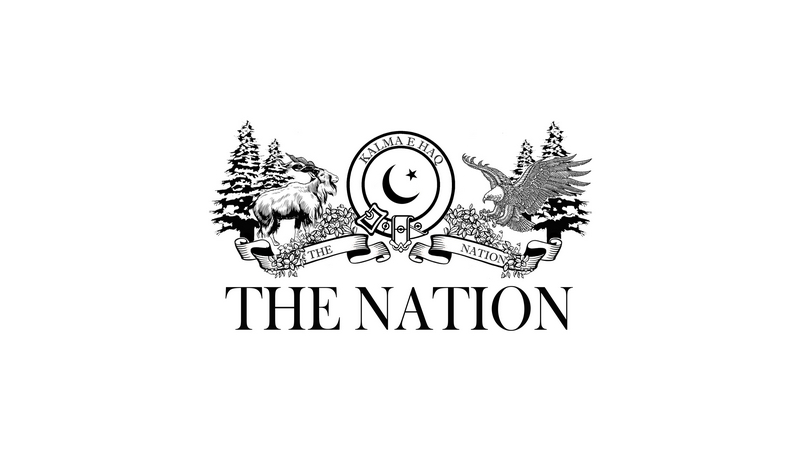teX
FULL MEMBER

- Joined
- Mar 31, 2021
- Messages
- 352
- Reaction score
- 0
- Country
- Location
True.IMF should not give 1 $ let pakistanis solve own issues .
People can’t simply relate Pakistans problems to their everyday life.
Its like complaining a neighbour for not being able to loan more money for your luxurious life.A frequent criticism levelled at IMF has been that its structural adjustment programmes (not just Pak) do not address the basic weaknesses of the economy. Including issues pertaining to elite capture and defense expenditure. What do the learned folks here say? @Joe Shearer @niaz @RiazHaq @Burger_King @VCheng @Meengla

PAKISTAN stands on the brink of default even as it remains engaged with the IMF at the tail end of a three-year programme. While the country’s economic woes are rooted in its own inept policies, IMF has escaped scrutiny of its stabilisation programmes that have failed to put Pakistan on a sustainable path in 22 attempts and certainly needing another programme immediately after this one concludes.
The journey to the brink has been a long one. Throughout the development experience of Pakistan, irresponsible government expenditures led to chronic fiscal deficits, mounting debt and rising interest payments, contributing to excessive domestic demand spilling into external imbalances and loss of reserves. With scant attention to competitiveness, export performance remained weak. Hence, Pakistan experienced persistent foreign exchange crises, forcing the country to seek IMF programmes. Each time, IMF programmes built reserves with borrowed funds, paying previous debts with new loans and arranging financing for foreign exchange shortfalls from various sources. Programmes were approved if creditors could be repaid, not necessarily if Pakistan would be able to stand on its feet.
But inevitably, crises re-emerged soon after the programmes ended because the fundamental issue of increasing foreign exchange earnings for import needs remained unaddressed or aggravated. The programmes failed to recognise that competitiveness is more than the real effective exchange rate in the post-WTO trading world.
Further, in its narrow focus on reducing fiscal imbalances through revenue measures of every kind, Fund programmes paid little heed to the impact of tax measures on investment, resource allocation, economic activity, export promotion and income distribution. As a result, exports remained stagnant, investment rates low and SMEs collapsed in recent years with rampant unemployment. Increasing allocations for income support programmes is neither sustainable nor a substitute for policies to support the robust growth of SMEs and agriculture.
During the current 22nd programme, Pakistan has largely followed the IMF stabilisation programme but like many democratic governments living and spending in the present while ignoring the medium-term consequences of accumulating expensive debt, both governments during the programme period failed to contain expenditures, which exceed 20 per cent of GDP.
With a blind eye towards expenditure growth, the IMF insisted on complex tax measures, ignoring their impact on economic activity and resource allocation to the detriment of growth and competitiveness. Consequently, as governments failed to achieve revenue targets, the IMF forced further stifling tax measures. Growth has slumped below 2pc, exports are declining further from a low level, aggravating the foreign exchange crisis, and inflation has steadily increased from single digits to a historical high of 40pc.
IMF’s dogmatic reliance on higher interest rates to contain inflation and attracting capital inflows to build reserves has proved unsuccessful, because private-sector spending in Pakistan, unlike in more developed economies, isn’t driven by credit, while short-term inflows are unstable for Pakistan, with long-term external liabilities.
Also, high interest rates have crippled industry and increased the burden on the budget; claiming Rs5.2 trillion, over 60pc of all tax revenues. While globally, post-2008 financial crisis, countries have pursued financial repression, keeping interest rates low in response to debt accumulation, IMF has prescribed ever-increasing interest rates in Pakistan, which have risen from 11pc to 20pc over three years, further contributing to increased public debt to over 80pc of GDP.
Despite high interest rates, inflation has steadily risen, raising the cost of doing business, and dampened investment and exports. The IMF prescription to protect interest incomes of banks and creditors from the erosion of inflation has rewarded the rich but failed to protect the poor from the burden of inflation. The most recent increase in interest rates of 300 basis points to 20pc has drained Rs600 billion from budgetary resources that the Fund prescribes to be offset by an increase in sales tax, a burden borne by the poor.
Even if Pakistan reaches an agreement with the IMF to avoid an imminent default before June 2023, the economic crisis would have been postponed, not overcome. And this would have been achieved through severe import controls that have left thousands of containers stranded in ports, closed down industry and reduced exports, besides creating shortages of essential medicines and food items. Looking ahead, Pakistan will need another IMF programme in July, but it must be a stronger homegrown adjustment programme or restructure its debt.
Regards










